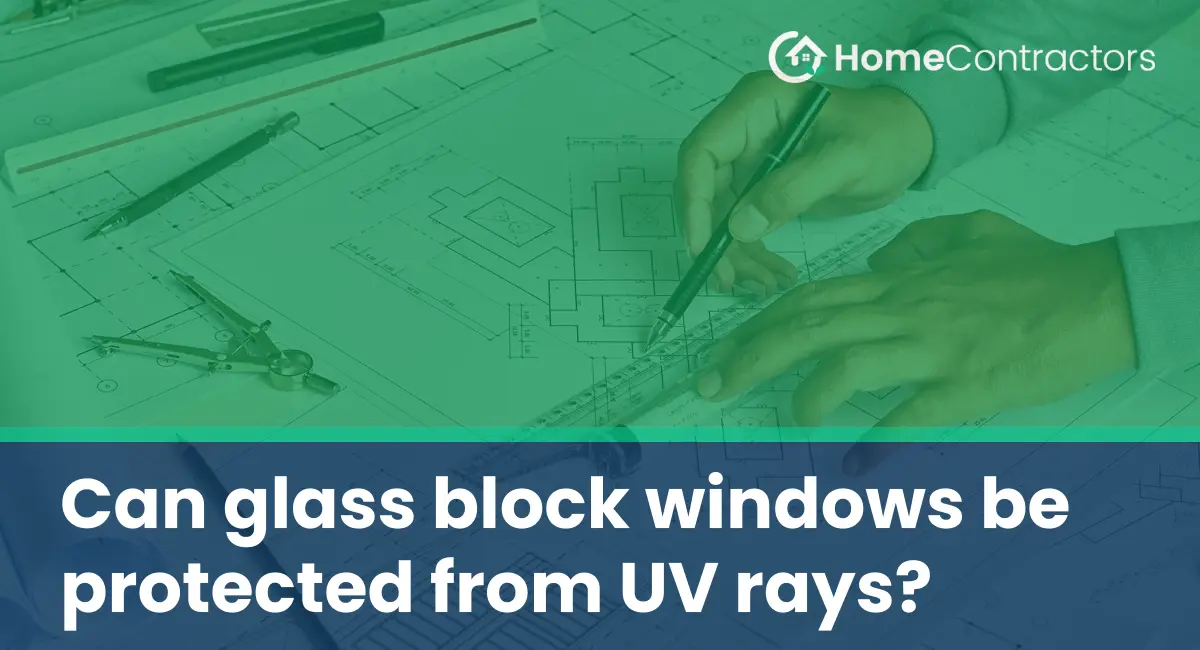Glass block windows have become a popular choice for homeowners seeking privacy, natural light, and a stylish aesthetic. However, their transparency raises concerns about the potentially harmful effects of UV rays. In this article, we explore whether glass block windows can be protected from UV rays, and discuss various solutions available to homeowners.
Understanding UV Rays and their Impact on Windows:
UV rays are a form of electromagnetic radiation emitted by the sun. These rays are divided into three categories: UVA, UVB, and UVC. UVA rays are the most common, and are responsible for skin aging and the development of wrinkles. UVB rays are responsible for sunburns and are the primary cause of skin cancer. UVC rays, on the other hand, do not reach the Earth’s surface due to the ozone layer.
When it comes to glass block windows, they are typically made from thick, solid glass blocks that inherently provide some level of protection against UV rays. However, depending on the specific type and thickness of the glass used, a certain amount of UV radiation can pass through.
1. Tinted Glass Blocks:
One solution to protect glass block windows from UV rays is to choose tinted glass blocks. Tinted glass blocks have a color coating that helps to filter out UV rays, reducing their impact. The level of protection offered by tinted glass blocks varies depending on the tint level and the specific manufacturer. It is essential to carefully consider the desired level of UV protection when choosing tinted glass blocks for your windows.
2. UV-Blocking Films:
Applying a UV-blocking film to glass block windows is another effective way to protect against UV rays. These thin, adhesive films are designed to filter out harmful UV rays while still allowing visible light to pass through. UV-blocking films come in various levels of protection, typically ranging from 99% to 99.9% UV reduction. The films are easy to apply and can be customized to fit any window size or shape.
3. Low-E Coatings:
Low-emissivity (Low-E) coatings have been widely used in traditional windows to regulate heat transfer and minimize UV exposure. This technology can also be applied to glass block windows. Low-E coatings work by reflecting UV rays away from the glass, preventing them from entering your home. These coatings are virtually invisible, allowing natural light to enter while blocking a significant portion of UV radiation.
4. Window Treatments:
Using window treatments such as blinds, shades, or curtains is another effective way to protect glass block windows from UV rays. These treatments can be adjusted to control the amount of sunlight entering the room, thus reducing UV exposure. Additionally, some window treatments are specifically designed to block UV rays, providing an extra layer of protection.
While glass block windows offer various benefits, it is essential to address the potential hazards of UV rays. Tinted glass blocks, UV-blocking films, low-emissivity coatings, and window treatments are all viable options to protect these windows from harmful UV rays. By assessing individual preferences and considering the desired level of UV protection, homeowners can safeguard both themselves and their interiors while enjoying the unique look and functionality that glass block windows offer.
